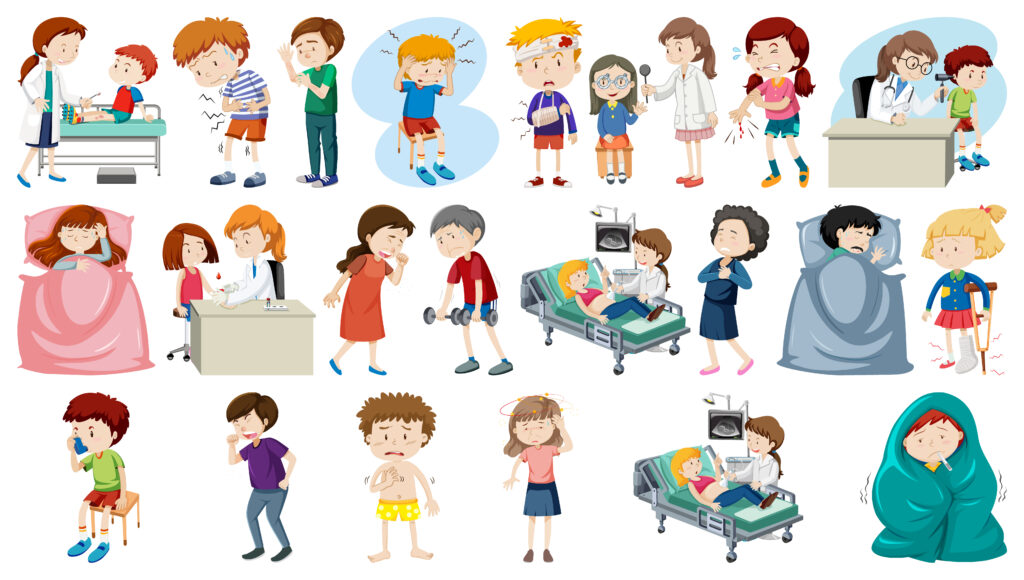By Marisa Hochberg : https://bfa.com/people/marisa-hochberg
Maybe you’re the type of parent who thinks that a germ-free house makes perfect sense. You can’t have an outbreak of colds and flu in your house, right? Well, think again: everyone knows that sniffles can make even the healthiest of kids sneezy and feel all snuffled up. But this doesn’t mean that you should put your child on antibiotics just because they have a cold. In fact, it’s probably best to call the doctor first — especially if your child has other medical conditions or is prone to allergies. This way, your doctor can rule out any infections before prescribing antibiotics. Unless your child has a chronic illness or another condition likely to trigger an allergy response, it usually is safe to wait until you see a doctor before popping them with antibiotics for coughs and flu like symptoms.
What to do if your child needs antibiotics for a cold or flu?
If your child has a persistent cough or if they have a higher than average fever, you should immediately call the doctor. But there are ways to avoid this if you’re aware of your child’s signs and symptoms. First, know your child’s body. Your child’s body responds better to certain medications than others. Be aware of your child’s allergies and treat any allergies your child may have. Your child’s immune system is like a “house of cards”: it uses allergens to build antibodies. When your child’s immune system overcomes a challenge, it creates “sick” or “inflammatory” T-cells. These cells are essential to fighting off infections. If you notice that your child’s cough and fever are getting higher, call your doctor. It’s important to get this right the first time, especially if you’re not the patient’s parent. Your child’s doctor will probably recommend a telephone or online appointment.
How to help prevent a cold or flu in kids
Quit smoking. Cough and flu are caused by inflammation, and smoking can cause inflammation in the air passages that your child uses to breathe. If you notice your child’s breathing has become more shallow or labored, offer them an inhaler. Wear a mask when you’re in a crowded place. Choking on dust and whether you’re in a hospital or at home, a doctor’s office or a department store, there is potential for exposure to infections and bacteria. A mask over the nose and mouth allows your child to breathe easier, but reduces the potential for aspiration that can cause pneumonia. Encourage natural remedies. While many doctors will perform Lung Function Testing on your child, you should encourage them to try natural remedies like tea tree oil, eucalyptus oil, peppermint oil and cedar oil, if they have allergies. Many of these have anti-inflammatory properties and may help reduce symptoms.
Over-the-counter medicine for children with coughs and sniffles
Cough and runny nose are common during the cold and flu season. Many children get them both, but just a few kids get really bad colds that cause a cough that becomes so severe they have to be hospitalized. Over-the-counter cough and cold medications are not a good idea. They often contain caffeine, which can make your child feel jittery or hyper. Their bodies need more sleep and make more Nestlé®s, Aches and Pains® when they’re awake.
The best way to boost your child’s immune system
Boost your child’s natural immunity. Your child’s immune system is like a “house of cards,” too: it uses the “sick” or “inflammatory” T-cells to fight off infections. The more “sick” T-cells your child has, the less likely they are to make “healthy” T-cells. Boosting your child’s immune system with a multivitamin might help, but you can also look into natural remedies. Many kids have allergies and asthma, and getting their “houses in order” is essential.
Call the doctor first — especially if your child has other medical conditions or is prone to allergies
Kids are more likely to develop allergies if something is preventing their immune system from responding appropriately to allergies. That could be a sleeping disorder, an under-active immune system, a food allergy or an autoimmune condition. While allergies can be a sign of a disease, they can also occur on their own in kids without any apparent cause. Your doctor can tell you what to watch for and give you advice on how to deal with it. If your child is always developing allergies, it might be better to get a second opinion and discuss your concern with a allergologist.
Conclusion
Kids can be very difficult to immunize. The games and activities you do may get your child in the mood to attack, but there’s no way to prepare them for the real world. That’s why it’s important to get your child’s immunization requirements in order. Depending on your child’s age, they may be able to get their shots at a younger age. But for the most protection, it’s best to start boosters at the same time. That way, if one is late or missed, you’ll still have time to get your child’s schedule right. And remember: don’t hesitate to get your child’s shots. Every year, kids miss out on important protection because they’re afraid to get their shot.

